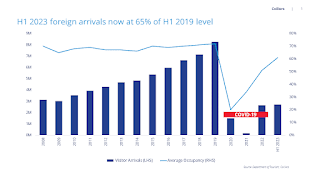Wazzup Pilipinas!?
In today's digital era, where personal information holds immense value, protecting sensitive data has never been more vital. As online dealings and engagements become standard, the demand for robust identity confirmation techniques has surged. One such technique that has gained prominence is Know Your Customer (KYC) authentication.
Initially introduced in the financial domain, KYC has extended its influence to diverse sectors, providing a potent barrier against identity theft, deceit, and unapproved entry.
In this article, we will explore the five ways KYC authentication preserves personal data, guaranteeing the sanctity of delicate information within an increasingly interconnected realm.
1. Enhanced Identity Verification
KYC authentication entails stringent identity validation procedures requiring individuals to furnish valid identification credentials. This guarantees that solely authorized individuals attain entry to services or platforms.
Biometric advancements like facial recognition and fingerprint scans additionally fortify identity authentication, given that these techniques are arduous to duplicate, presenting an elevated level of security against deceitful endeavors. By ascertaining users' identities before granting entry, KYC diminishes the peril of unsanctioned access to personal data.
Furthermore, with its immediate security merits, KYC verification cultivates a sense of answerability and openness in digital exchanges. For instance, Authenticate helps prevent theft by authenticating photo IDs or passports from 203 different countries.
2. Prevention of Fraudulent Activities
A fundamental objective of KYC validation is to thwart and identify deceptive undertakings. Cybercriminals frequently endeavor to manipulate online platforms by adopting counterfeit personas or exploiting purloined credentials. KYC procedures necessitate users to furnish authentic identification records and personal particulars, rendering it appreciably intricate for evil entities to mimic others. Through the integration of robust identity authentication mechanisms, the likelihood of deceitful transactions, unsanctioned account entry, and phishing endeavors is substantially curtailed.
Furthermore, KYC validation establishes an ever-vigilant deterrence against evolving artifices fraudsters employ. By embedding real-time authentication and uninterrupted monitoring, establishments can promptly pinpoint dubious trends or aberrations in user conduct, enabling them to be nimble in responding to potential threats.
3. Compliance with Regulations
KYC authentication serves not solely as a security precaution but also as an obligatory mandate across several sectors. Various regulatory bodies enforce rigorous directives that enterprises must conform to, aimed at thwarting money laundering, financial misconduct, and other unlawful undertakings. Through the integration of KYC procedures, organizations ensure adherence to these guidelines, thereby shielding their patrons' confidential information while bolstering the digital realm's overarching security.
Furthermore, the all-encompassing character of KYC verification aligns seamlessly with the dynamic framework of global regulations. As financial and digital transactions transcend geographical borders, KYC is a unifying benchmark that streamlines business and user processes. Its systematic approach not only aids in precluding unlawful endeavors but also fosters international collaboration in the battle against financial misconduct.
4. Privacy and Data Protection
While KYC encompasses compiling personal information, its core design centers around the paramount importance of safeguarding privacy and data security; service providers must meticulously adhere to data protection legislation and rigorously maintain confidentiality while managing sensitive data.
Encryption methodologies are frequently employed to fortify data throughout transmission and storage, curbing the risks of unauthorized access or data breaches. As a result, individuals can be assured that their data is being handled responsibly and with utmost security.
Furthermore, KYC procedures adopt a multi-layered stratagem to ensure comprehensive data fortification. Moving beyond the initial data-gathering phase, service providers enforce robust access protocols, confining data accessibility exclusively to authorized personnel. Establishing regular audits and vigilant monitoring mechanisms is a common practice, promptly identifying anomalous activities.
5. Building Trust and Credibility
KYC verification goes beyond data protection, becoming a cornerstone of trust between businesses and clients in the digital arena. When users are assured that their personal information is secure and that service providers are actively combatting fraud, a foundation of credibility is established.
This trust is pivotal in encouraging users to engage in online transactions and share data willingly, underpinning the growth and sustainability of businesses in the digital realm. This fostering of trust holds immense significance, given the evolving landscape of digital interactions where concerns about privacy and data security have taken center stage.
Final Thoughts
In an era where personal data is vulnerable to misuse and manipulation, the significance of robust identity validation mechanisms cannot be overstated. KYC verification is a potent bulwark against identity theft, deceit, and unauthorized entry. Through the augmentation of identity validation, the thwarting of deceptive acts, the guarantee of adherence to regulatory stipulations, the preservation of confidentiality, and the fostering of trust, KYC assumes a pivotal role in upholding the sanctity of personal data.
With the relentless march of technological progress and the increasing prevalence of digital interactions, the embrace of KYC verification transcends mere proactivity—it becomes imperative. By championing KYC, individuals and enterprises contribute to erecting a digital domain characterized by enhanced security and safeguarded personal data.
This proactive stance is a testament to the collective dedication to creating an environment where the digital landscape is fortified against threats, paving the way for a future where personal data protection is not just an aspiration but an assured reality.

























 Ross is known as the Pambansang Blogger ng Pilipinas - An Information and Communication Technology (ICT) Professional by profession and a Social Media Evangelist by heart.
Ross is known as the Pambansang Blogger ng Pilipinas - An Information and Communication Technology (ICT) Professional by profession and a Social Media Evangelist by heart.











